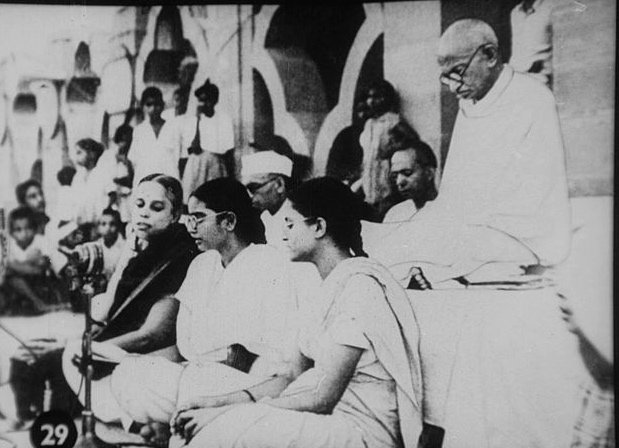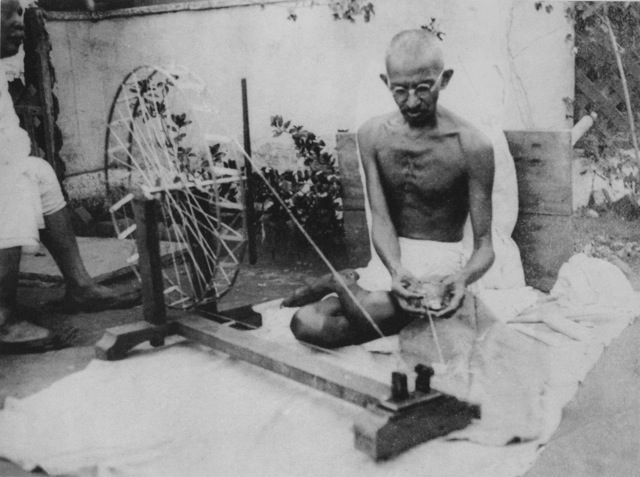
Presenting the life message of Mahatma Gandhi and the cultural heritage that nourished him.
The Mahatma Gandhi Memorial Foundation, Inc. was founded by Swami Premananda of India and incorporated in Washington, DC in 1959. The Foundation is a 501c(3) tax-exempt non-profit organization. The Gandhi Memorial Center houses the Foundation headquarters.
Books on Gandhi from the Mahatma Gandhi Memorial Foundation:
The Gandhi Message: Messages of the Mahatma
Resources and Highlights:
Gandhi Center Library
The Library is open to the public on Fridays and Saturdays from 10am to 4pm and by appointment (except during July and August.)
Gandhi Sculpture
This life-sized and sculpted from life bronze statue of Mahatma Gandhi was created in 1946 by Clara Quien while she stayed at Sevagram ashram in Wardha, India.
Speaking of Gandhi Podcast
Each episode highlights messages from Mahatma Gandhi with reflections on his speeches, writings and actions throughout his life.
Select Quotes from Gandhi
Thoughts from Mahatma Gandhi from a variety of themes are offered to inform, inspire and enlighten.
Cultivating the Head, Heart and Hands
The Gandhi Memorial Center offers educational programs for all ages.











Gandhi’s Steadfast Yoga is a thoughtful reflection on the philosophical foundation of Gandhi’s wisdom, action, love and realization according to his ideal of yoga philosophy. His steadfast yoga was a lifelong pursuit fulfilled by every aspect of daily living.